In honor of Father’s Day, we asked a few animal behavior specialists for their favorite examples of unusual parenting strategies among wildlife species.
Shared parental care is common in fish, with many fathers taking on the bulk of the work, says Gil Rosenthal, a biology professor at Texas A&M University and co-director of the CICHAZ Field Station in Mexico.
For example, soon-to-be cichlid fathers will bite your ankles if you come too close to their nests. The Texas fish defend their mates who fan their eggs, and they take their jobs seriously. The discus fish in the Amazon covers itself in a prolactin mucus. After the babies consume the mother’s mucus blanket, she shakes them off and they head to the father.
Bird parents tend to raise young together, and in mammals, females are primarily in charge.
“The reason you have it so ubiquitous in mammals, with the females providing most of the care, is that the females get pregnant and nurse the young,” says Rosenthal.
Here are a few of the researchers’ other favorite fathering strategies.
-
Seahorses
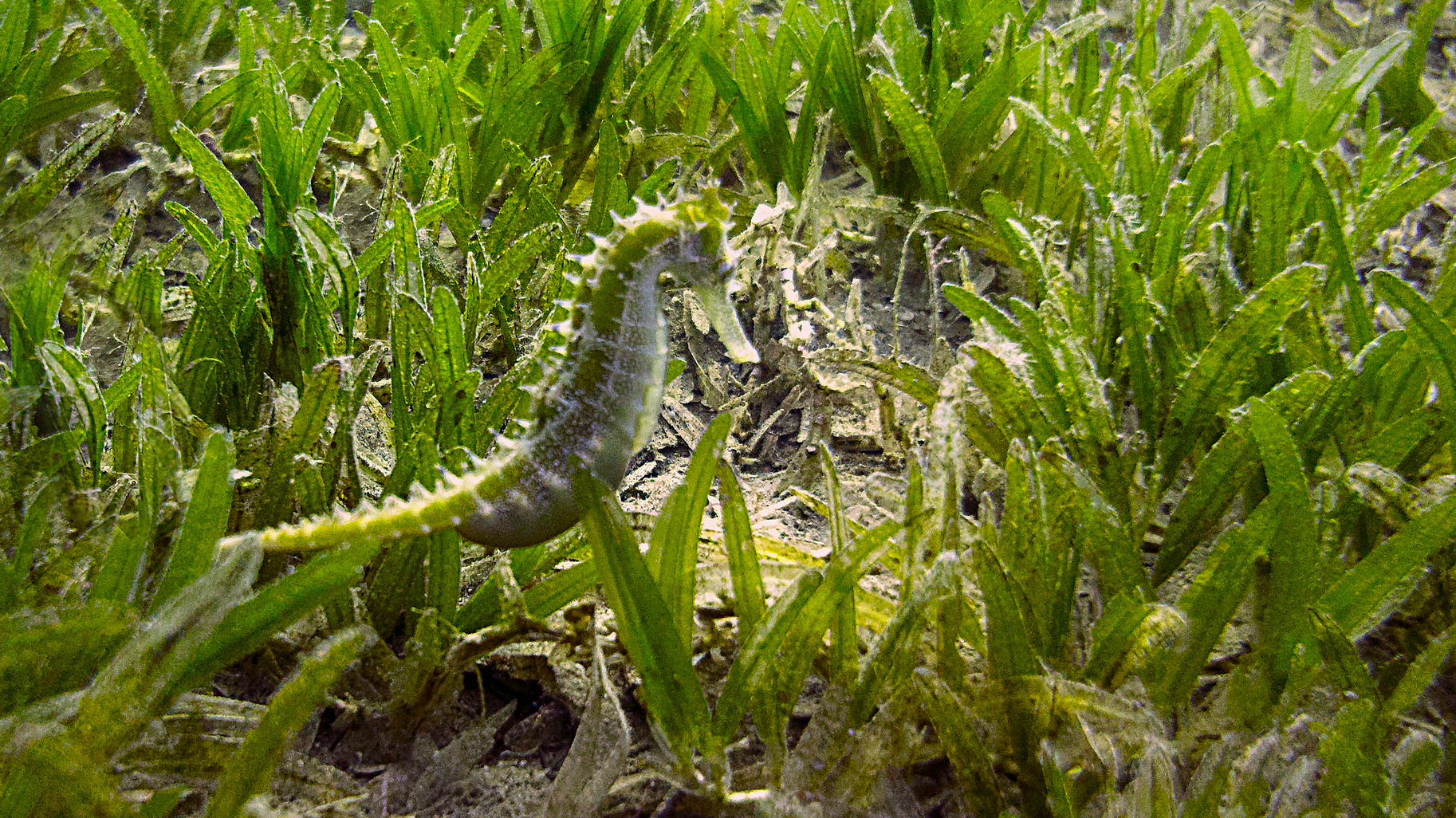
Pregnant male seahorse in Bannerfish Bay. Photo © Mal B / Flickr through a CC BY-ND 2.0 license No matter the duties assigned to mothers or fathers after eggs are laid or babies born, one rule applies to nearly everything: Females are the pregnant ones.
And then there are seahorses.
In seahorses, males choose mates, a change from most species where females hold the eggs and as a result pick the fathers. After a multi-hour mating ritual and dance, the female deposits her eggs in a pocket on the front of the male, called a brood pouch.
The male then fertilizes the eggs — ensuring he’s carrying his own offspring, not those of another male — and carefully incubates them.
His pouch moves water over the eggs and even provides them with limited nutrition.
After a few weeks, depending on the species, the seahorse gives birth to squirming, swimming babies.
But new research shows it’s sometimes a bit more complicated, according to Fred Wasserman, associate professor of biology at Boston University. If the male decides he doesn’t like the female enough, he may choose not to fertilize the eggs, or even absorb the eggs and associated nutrition into his body in order to start again with another female.
-
Marmoset
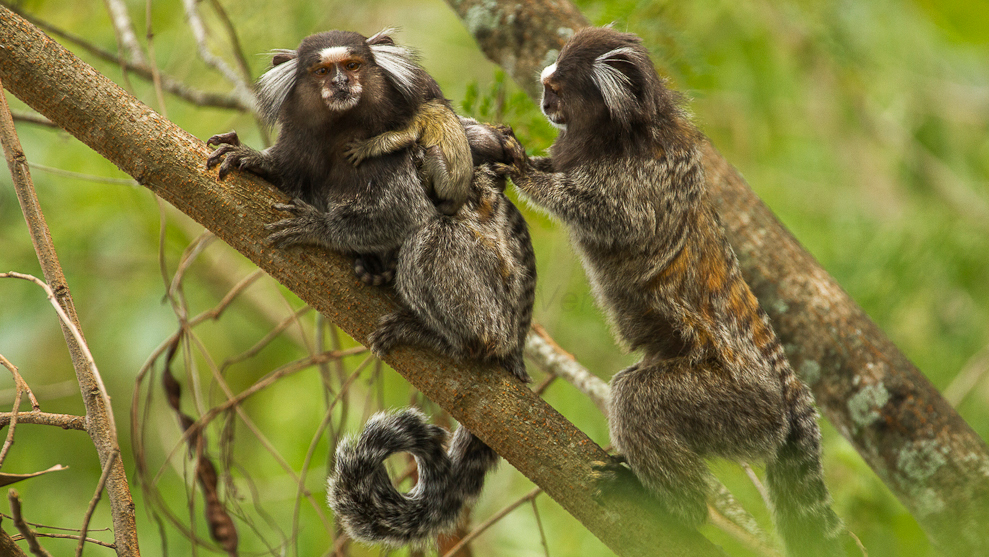
Family of common marmosets. Photo © Francesco Veronesi / Wikimedia Commons through a CC BY-SA 2.0 license Instead of looking at the female marmoset as delinquent moms, think of the dads as particularly involved. And for good reason.
Marmosets, a South American primate, often give birth to twins or even triplets. While the mothers will nurse like most mammals, nearly all other caregiving goes to someone else, typically the dad.
“They carry. They protect. They groom and play with them, and when they’re old enough and learning to eat proper food, it’s the father that’s transferring food to them,” says Jennifer Verdolin, a scientist and author of Raised by Animals: The Surprising New Science of Animal Family Dynamics.
It’s not because mom is lazy. It’s because she simply doesn’t have the energy to provide additional care, especially since she will be ready to become pregnant again soon.
“If you have to deal with twins, and you’re a single parent, it’s a big deal,” says Verdolin.
New research shows a male undergoes a hormonal change that prevents him from being aroused by other females when he has babies to tend to. It also nudges him to race to soothe other marmoset baby cries, even if they’re not his own offspring.
-
Rhea

Rhea americana, Península Valdés. Photo © Pablo BD / Wikimedia Commons through a CC BY-SA 2.0 license Male rheas like babies. A lot.
The South American, ostrich-like bird builds nests and then waits for females to drop eggs in them. The more eggs the better. Some nests could have as many as 50.
Then for up to six weeks, the father incubates the eggs. He survives off of very little food and runs off any females that come close.
The babies are precocial, which means when they hatch they can move around similar to geese or ducks. Instead of a baby sparrow, for example, that must stay in a nest with both parents feeding it until it can fledge, a baby rhea can move and follow its dad around.
“The male rheas still provide care by protecting the young, and he is very protective of them,” says Wasserman. “Even when females come to the rhea, and he has a brood of young, he will be very aggressive to her and will protect them from her.”
The patient fathers will care for their young for up to six months, where the babies learn what to eat and how to respond to predators. If the dads see abandoned babies, they will sometimes take those in, caring for them as they do their own brood.
-
Emperor Penguin
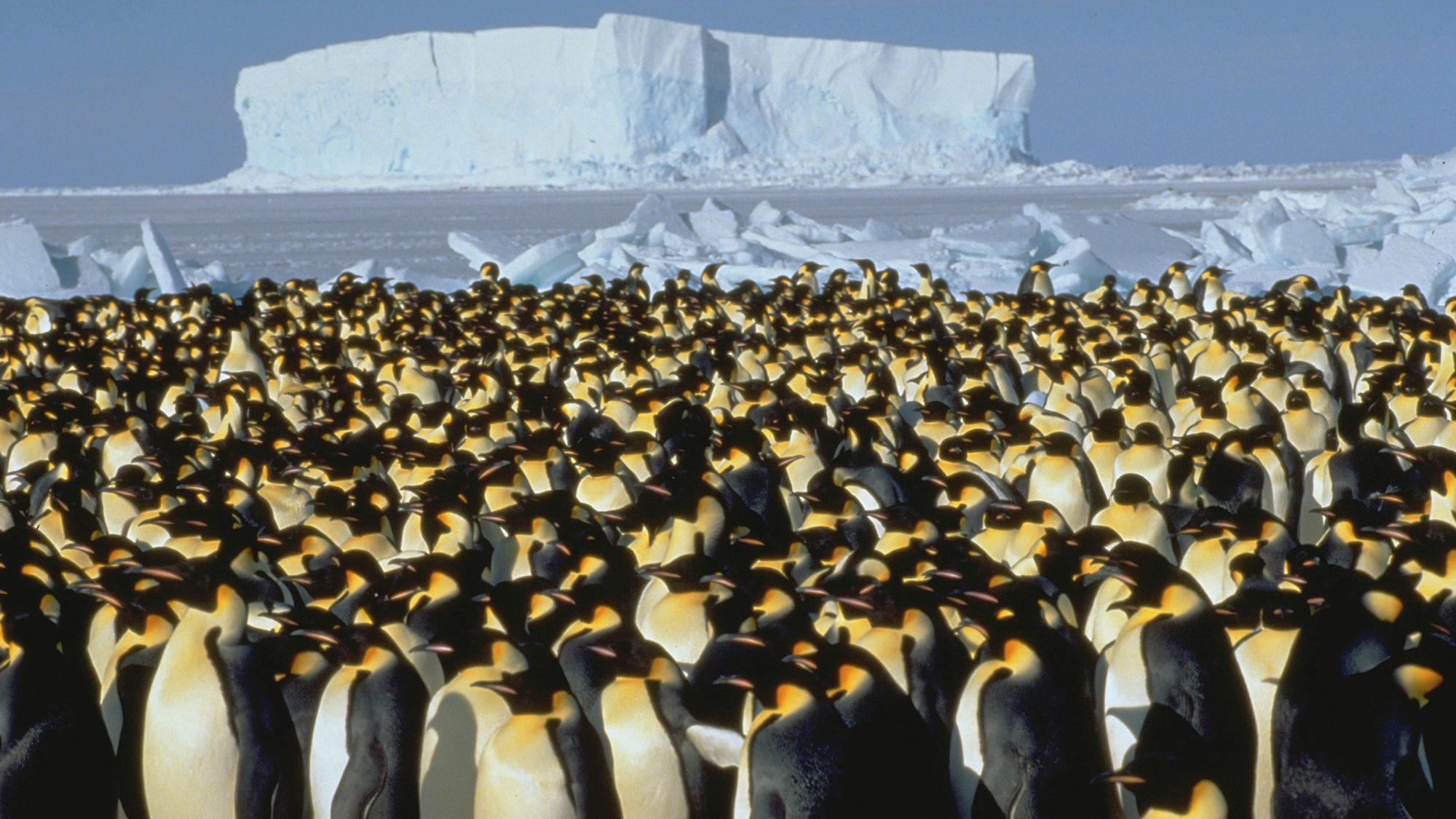
Emperor penguins near Western Ross Sea, Antarctica. Photo © Tory Kooyman Emperor penguin fathers take extreme conditions in stride.
The creatures wander awkwardly over long stretches of ice and snow to reach breeding grounds where, after extensive courtship and mating, the female gives her egg to a male penguin. As winter hits, the male snuggles it under a pouch of skin near his belly and over his feet. Their offspring passed off to the fathers, the females dive into the ocean and will spend months eating and packing on fat.
The egg needs to stay warm at about 86 degrees Fahrenheit in a climate that reaches as low as 60 below zero. To keep them alive, males will huddle together in groups of 10 per square meter to maintain body temperatures.
He loses up to 45 percent of his body size over the course of the winter, and will go up to 16 weeks without food. When the chick hatches, he feeds it a liquid substance produced from his esophagus.
By late winter, the mothers return and the fathers reluctantly transfer their charges back to the mothers to return to water to eat.
-
Razorbill
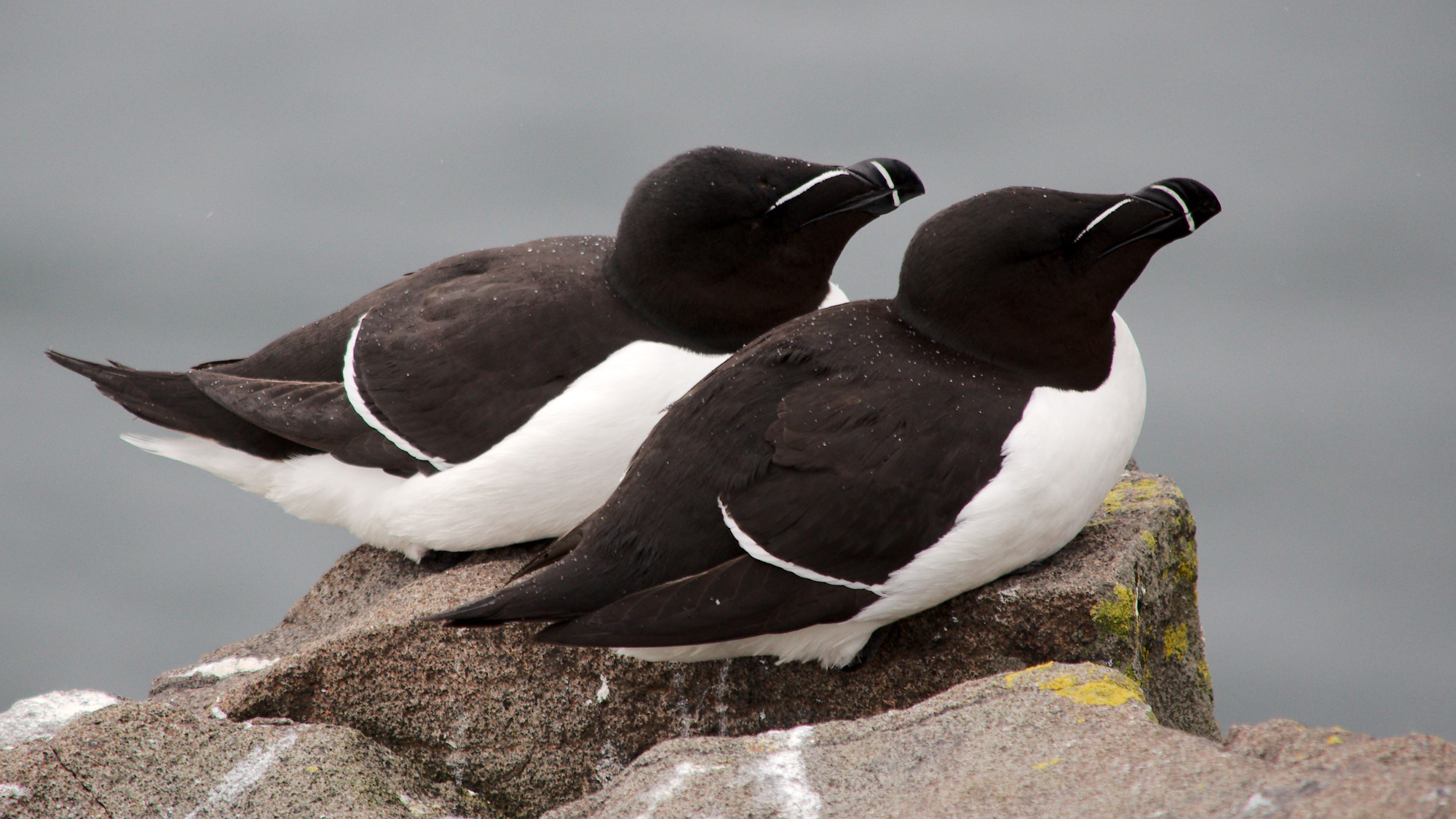
Razorbills. Photo © Magnus Hagdorn / Wikimedia Commons through a CC BY-SA 2.0 license In the nest, both razorbill parents are equally attentive. They share incubation of their lone egg, and they both feed the newly-born, semi-precocial baby.
But it’s dad that teaches the chick how to survive.
Once the seabird chick leaves the nest after almost three weeks, the fathers take them for a journey into the northern Atlantic Ocean, showing them how to dive to depths of up to 100 meters to catch fish such as herring and sandlance.
They spend so much time together, in fact, that a father recognizes its chick’s vocalizations as unique from any others, just as the chick recognizes its father.
Moms, on the other hand, don’t share the same vocal imprint.
“He does what he can to teach his son or daughter to go into the world and be as successful a razorbill as it can be,” Jennifer Verdolin says.
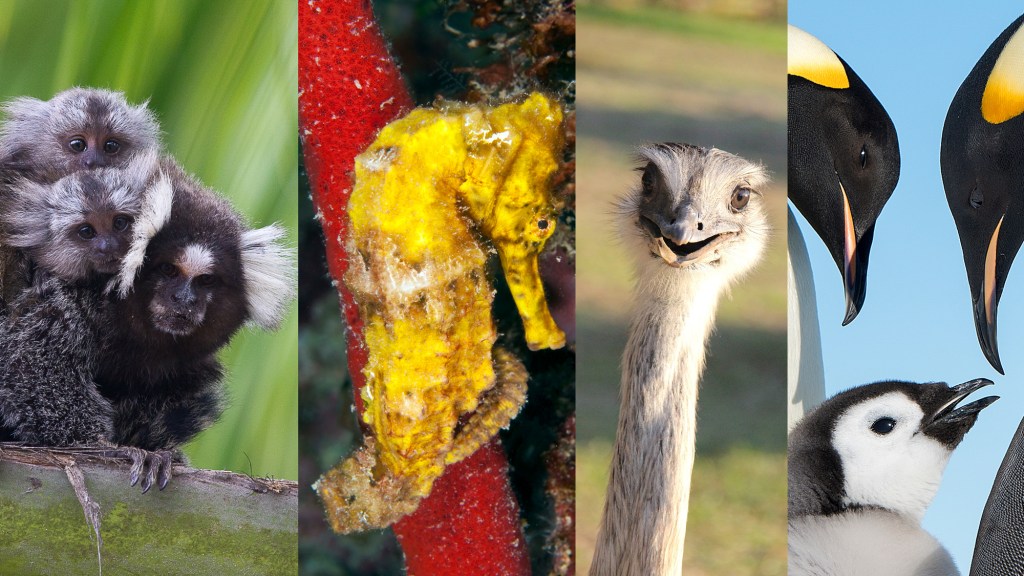



Love the Father’s Day, animal fathers stories.